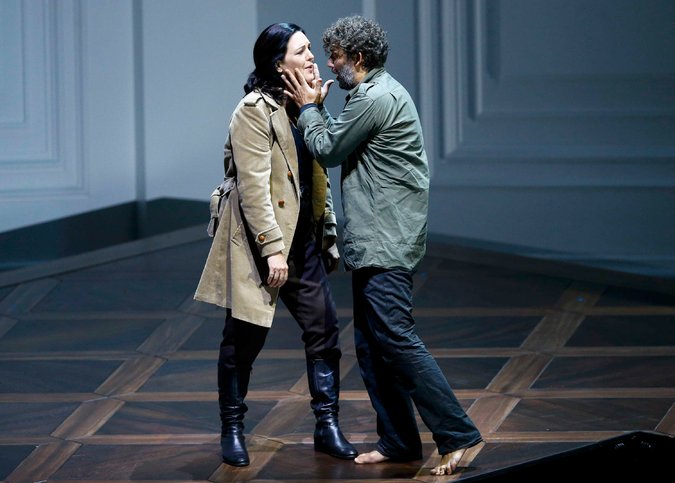The Maestro’s Corner: Beethoven’s “Fidelio”
The Manifestation of Desire
April 26, 2016
Musical history is full of tragedies. Mozart died far too young; Bach wrote just 215 cantatas. One of the greatest of these tragedies, however, is the fact that Beethoven wrote only one opera. This opera, Fidelio, has been lauded as one of the greatest operas ever written. This is ironic, as Fidelio is technically not even an opera – it’s a singspiel, a kind of musical play where the action happens during spells of dialogue punctuated with arias, ensembles, and recitative. However, since singspiel is a relatively obscure form of theater, and opera singers are required to perform it, Fidelio is generally conceived as an opera.
The plot is typical of the operas of that age; in other words, ridiculously complicated. Greatly simplified, it involves a woman named Leonore disguising herself as a boy, Fidelio, to rescue her husband, Florestan, who has been imprisoned by the bad guy, Don Pizarro, in a jail run by a nice guy, Rocco. Of course, Rocco’s daughter, Marzelline, falls in love with Fidelio, much to the chagrin of Rocco’s assistant, Jacquino, who has been crushing on Marzelline for years. In light of an upcoming investigation by Don Pizarro’s boss, Don Fernando, Pizarro decides to kill Florestan and get him out of the way. The situation rapidly descends into utter chaos, from which a deus ex machina happy ending miraculously emerges.
Despite its complications, however, the plot is charming. At its root is the concept of marital love, the bond between husband and wife, and this theme ties directly into a very personal aspect of Beethoven’s life, or rather, the lack of this aspect. Beethoven never married.
It was, for many years, Beethoven’s goal to marry and have a family. His prospects at the beginning of his career were already low, as he possessed neither noble birth nor pleasing appearance, and they steadily decreased, as he lost his hearing and gained a reputation for being singularly reclusive and disagreeable. Although he proposed to several women, he was turned down each time (if not by the lady herself, then by her disapproving family.)
Beethoven eventually gave up, but he must have always regretted it. His longing for a family didn’t fade – this longing manifested itself in the letters he wrote to various friends and lovers, and, most publicly, in Fidelio. The opera’s happy ending completely depends on Leonore’s bravery, commitment, and determination, and the final chorus is not just an exultation of freedom, but a song of praise for her faith and courage. Leonore was, in Beethoven’s eyes, the ideal wife. In fact, he wanted to call the opera Leonore, not Fidelio, but his publisher thought otherwise.
Fidelio was a massive undertaking. It took Beethoven nine years and three different versions of the opera before it reached its final form. Considering the fact that it was Beethoven’s first (and last) opera, he did an extraordinary job. The arias are sublime, the duets enchanting, the ensembles spellbinding, and Fidelio continues to be a performance staple for many well-known opera houses.
Beethoven himself (as was his custom) professed to be dissatisfied with the final outcome. One wonders if the opera’s protagonist reminded him too much of what would never be his.



